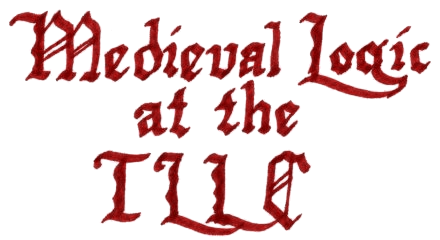

| People |
| Courses |
| Events |
| Dissertations |
| Resources |
| Projects |
Dialogical Aspects of Obligationes
International Medieval Congress 2010
12 July 2010
Abstracts
Stephen L. Read, "Kilvington's Doctrine of Obligations"
The paper will consider Richard Kilvington's proposed revision to the obligational rules for dealing with irrelevant propositions in his Sophism 47, and with Norman Kretzmann's and Paul Spade's use of it in their speculations about the purpose of obligational disputations. The paper will also analyse Kilvington's argument in his discussion of Sophism 47 and his claim that one can doubt what one knows.
Catarina Dutilh Novaes, "Medieval Obligationes as Logical Games of Discursive Commitment Management"
In a series of papers (Dutilh Novaes 2005, 2006a, 2006b) I have put forward an interpretation of medieval obligationes as logical games of consistency maintenance. This interpretation seemed to shed light on several otherwise rather obscure features of this form of oral disputation, but it did not really account for its essentially normative component – after all, the very term 'obligationes' evokes normativity. Prompted by a reflection on the similarities between obligationes and R. Brandom's 'game of giving and asking for reasons' (Dutilh Novaes 2009), I now think that much more than consistency maintenance is at stake with obligationes. Rather, obligationes offer a framework for discursive commitment management, i.e., for a speaker to be able to coherently maintain the discursive commitments he or she makes in a dialogical situation, in particular with respect to what other commitments ensue from commitments previously undertaken. Thus seen, obligationes would capture the basic principles of rational discourse, which might explain why, besides serving pedagogical purposes, it also became widely adopted for the purposes of scientific exposition and analysis in general. In my talk, I will explore this new, more encompassing interpretation of obligationes.
Christian G. Fermüller, "Relations between Medieval and Modern Logical Dialogue Games"